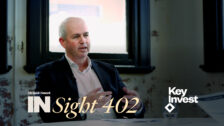Help wanted, advice needed… digital wealth to the rescue
Fewer people in Australia are likely to get financial advice in the wake of the Hayne Royal Commission – the inevitable consequence of implementing the final report’s wide-ranging recommendations.
The irony should not be lost on anyone. Although the Royal Commission might achieve its goal of overhauling a malevolent financial services sector, it will also mean many people who previously got personalised financial advice will no longer find this is a viable option.
The reason for this unintended outcome is quite simple. The cost of financial advice in Australia is set to rise because the Royal Commission’s recommendations will come with a high price tag.
The need to meet tougher compliance standards as the regulators become more interventionist and the likely increase in professional indemnity insurance are just two factors that will push up the cost of advice.
On the supply side, many advisers, especially those nearing retirement age, may choose to leave the industry (up to 30 per cent has been suggested), particularly with many having to meet higher educational standards under the guidelines being devised by the Financial Adviser Standards and Ethics Authority (FASEA).
Post the Royal Commission, some advice firms will opt to own an Australian Financial Services (AFS) licence. While that brings advantages, such as providing full autonomy over the business, it also comes at a cost that will ultimately be borne by the client.
It’s not just the cost of the licence. Firms opting to go down the AFSL path will have to devote significant resources to governance and client management, including data management, audit, and technology and platforms.
For those not wanting to own an AFSL, the dealer group model is likely to be a popular choice. But the model will be a far cry from the institutional dealer groups that could subsidise their fees with product sales. Instead, the new dealer groups, most likely to be adviser-owned, will have to absorb the cost of platforms and product and that will ultimately flow through to the client.
So, our crystal ball shows a future where there are less advisers and a higher cost of advice.
At the same time, we know more people need assistance with their wealth management. Research shows that about 85 per cent of Australians don’t get any form of financial advice. Perhaps more significantly, the majority of the 1.1 million self-managed super fund (SMSF) members, who, on average, have superannuation balances of about $1.2 million, don’t get advice.
In this environment, the growing appeal of robo advice is perfectly understandable. It provides a solution for the many investors who need assistance but don’t want to incur the high fee structure of a financial adviser. It offers efficiency, convenience, affordability, and is totally engaging.
It’s not just the many people with modest investment amounts for whom this will be attractive; even people with a singular objective, such as how to save for their first home, will take advantage of it.
In a recent piece of research, the Sydney-based strategy consulting firm Thinque surveyed more than 1000 adults, discovering that 30 per cent were prepared to trust their money to robo advice. It’s a finding that not only doesn’t surprise us, especially following the Royal Commission’s revelations, but one we would expect to see grow strongly as the efficiency, convenience, affordability, and engagement of robo advice becomes more widely understood.
Graeme Brant is senior executive, strategic partnerships, Quantifeed
Fewer people in Australia are likely to get financial advice in the wake of the Hayne Royal Commission – the inevitable consequence of implementing the final report’s wide-ranging recommendations.










